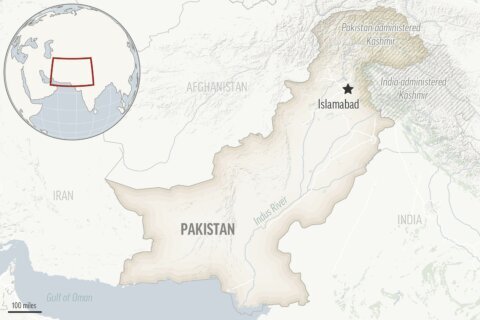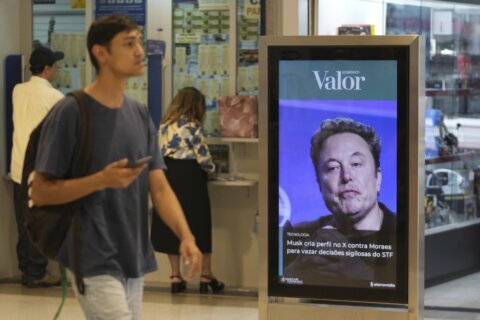FREDERICKSBURG, Va. (AP) — For almost 20 years, a group of women who fled Latin American countries because of violence against them have been supporting each other in the Fredericksburg area, throughout Virginia and into Washington and Maryland.
The Latinas call themselves Madre Tierra, or Mother Earth. Since 2004, they’ve connected about 500 immigrants with lawyers who helped secure their legal status or application for political asylum. Group members also have provided emotional support after domestic violence or sexual assault, human trafficking or forced marriages or persecution because of their sexual orientation.
“They didn’t migrate for the American dream,” said Dilcia Molina, the group’s founder and president. “They migrated to save their lives.”
Once in America, some discovered similar problems as those they’d tried to escape. Younger women, especially those who don’t have driver’s licenses or speak English, sometimes were expected to give sexual favors in return for jobs and transportation, Molina said. Others faced continual harassment from managers to the point of being sexually assaulted.
Even before the women arrived in American cities and towns, they fell prey to human traffickers lurking around immigration detention centers. The traffickers promised jobs but ended up luring the women into forced labor or sex, she said.
“They take advantage of everybody,” Molina said about traffickers, “women who are alone, women with families, people who are part of the LGBTQ community. It doesn’t matter the age range, they pretty much go after everyone.”
The members of Madre Tierra decided to do something to stem the tide of violence, as well as inequality. There are about 80 in the group, with half being in the Fredericksburg area and the rest throughout Washington, Maryland and Virginia.
Many of them clean houses or commercial buildings and often get a pittance of what’s paid to owners of cleaning companies.
During a recent interview, five members of the group described, with the help of interpreter Obdulio Alcantara, a typical arrangement. They vacuum, dust and scour toilets in a three-story, two-bathroom townhouse and get about $35 per job while company owners receive as much as $250, said Jean Carla Palomo, who’s from Bolivia.
The women have started a cleaning cooperative that they will own and manage. Called Magic Broom, it’s a branch of Madre Tierra, and the 12 women who form the co-op, where everyone has an equal say, see it as a solution on several fronts.
“This will allow us to come together and make a living and hopefully get the means to be able to sustain ourselves,” said Palomo, who said Latinas typically have to work two or three jobs to make a living.
In addition, she said the co-op will “teach women about their rights so they can know when they’re being discriminated against and how to prevent violence.”
As part of the process, the women plan to work in small groups to protect each other and check out each situation before they sign contracts. The co-op already has acquired one cleaning contract in Washington, and members are excited about the prospect of more, along with the independence that it would bring.
“It makes us feel very happy, very safe,” said Molina, who was on the board of one of the only LGBTQ community centers in Honduras. The paramilitary there invaded her home and threatened to kill her and her family because of her activism.
Leslie Moncada, who’s also from Honduras, said the new cooperative makes her feel hopeful.
“It’s not just a business that belongs to one person,” Molina said. “It’s a collective that we’re all owners of.”
“Unification is what brings us power,” said Counseulo Barboso, who’s from Colombia and was married to an abusive husband.
Molina jokingly said the group will feel more powerful when they have more contracts — and she invited the newspaper to do another story “when we’re millionaires.”
Members of Madre Tierra have been working with Samuel Gray, a Richmond lawyer, to set up the legal structure of the cooperative. He typically works with similar businesses that are “governed democratically so each member of the cooperative has a single vote and they vote on decisions,” he said.
He’s worked with people of diverse backgrounds but never one composed of Spanish-speakers “with this element of advocacy for women.”
“I think they’re amazing,” Gray said. “It’s been an honor to work with them and I’m just happy to be helping out, trying to get them more exposure and business and help people learn what’s going on.”
Copyright © 2024 The Associated Press. All rights reserved. This material may not be published, broadcast, written or redistributed.







